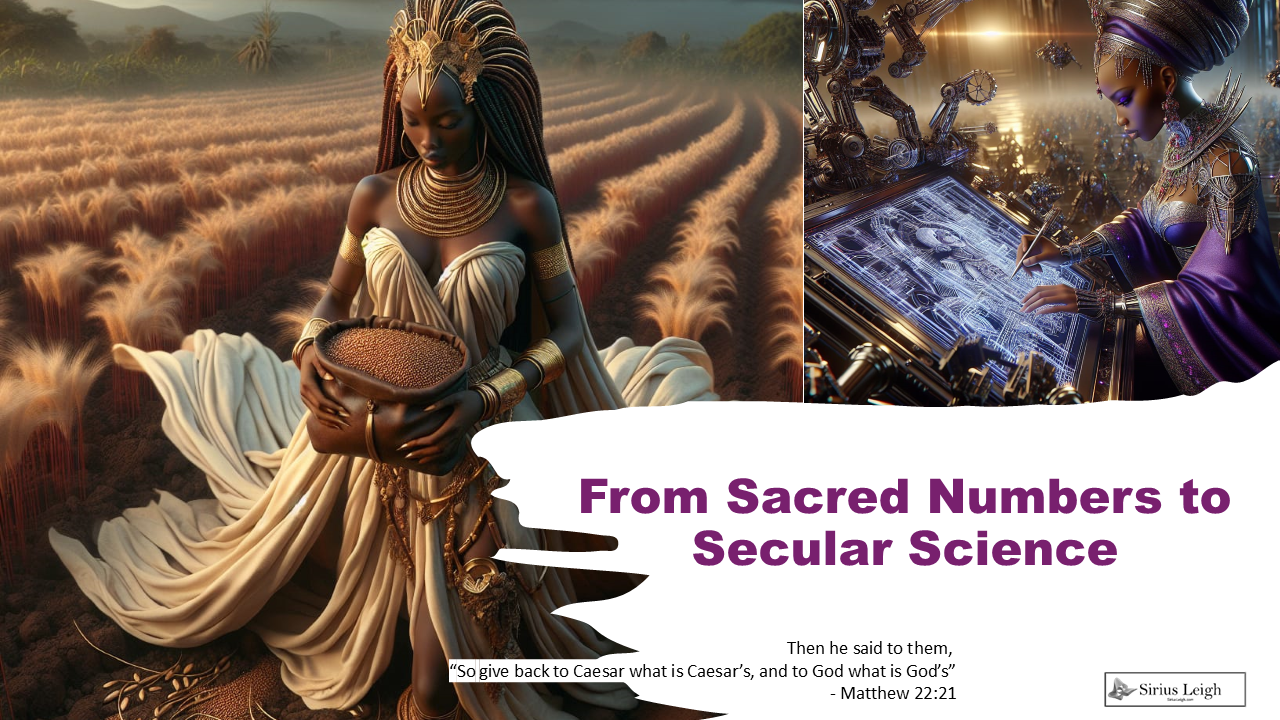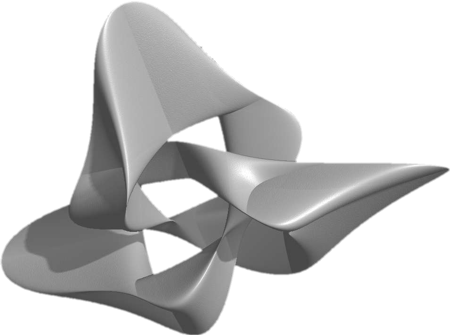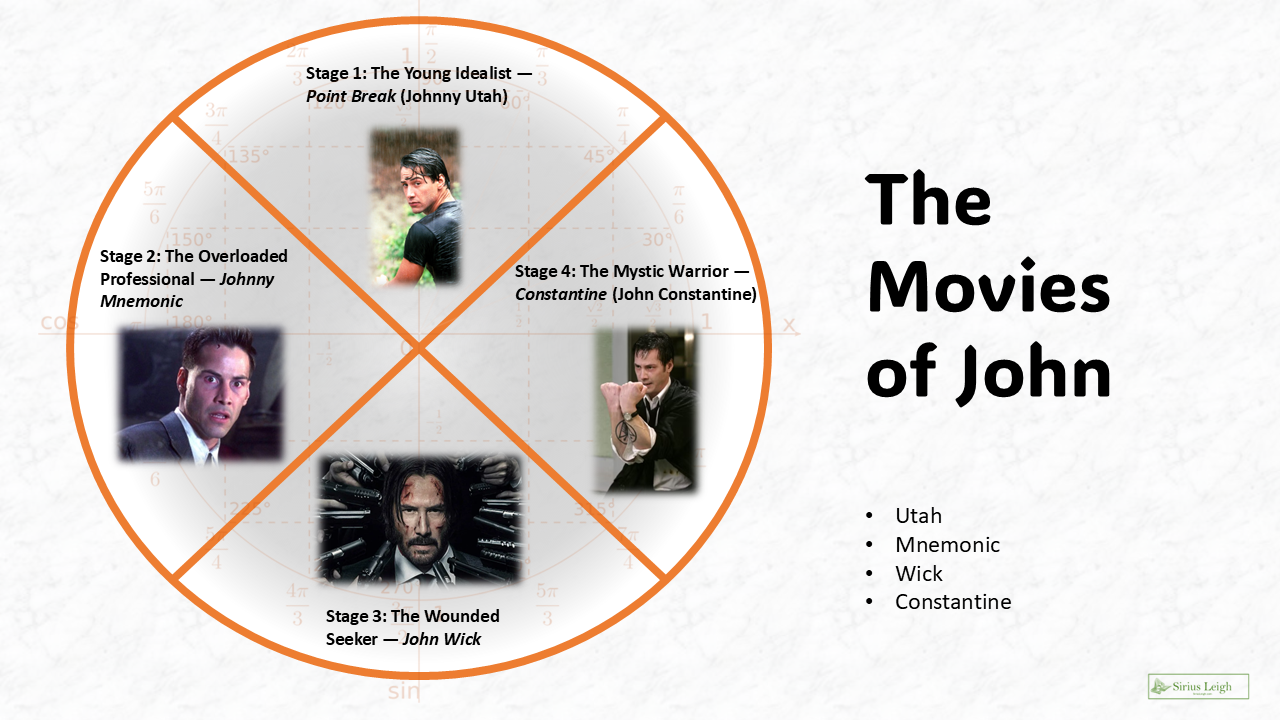
From Sacred Numbers 2 Secular Science
The Evolution of Mathematics
Mathematics, today viewed as the epitome of logic and objectivity, began its life deeply entwined with spirituality and mysticism. For much of human history, numbers and mathematical patterns were not just tools for measurement but sacred symbols that revealed the deeper workings of the cosmos.
So how did we get from a worldview where math was spiritual to one where it is largely secular? The answer lies in the slow evolution of human thought from ancient mysteries to Enlightenment clarity.
Mathematics as a Sacred Language
In ancient civilizations, mathematics was inseparable from spiritual practice. The Pythagoreans, for example, saw numbers as the essence of all things. For them, mathematics wasn’t just practical; it was a key to understanding divine harmony. The famous Pythagorean belief that “all is number” linked mathematics to music, astronomy, and ethics, suggesting a universe built on sacred ratios and relationships.
Similarly, ancient Egyptians and Babylonians used numbers and geometric patterns not just for architecture or trade, but for religious rites and astrological predictions. In India, mathematical concepts like zero and infinity emerged alongside deep philosophical and spiritual traditions, further cementing the bond between math and mysticism.
The Middle Ages: Math and Theology
During the medieval period, especially in Islamic and Christian traditions, mathematics was often seen as a way to explore and honor God’s creation. Scholars like Al-Khwarizmi viewed their mathematical work as part of a divine quest for knowledge. Geometry was considered sacred because of its perfection and symmetry, believed to mirror God’s perfect order.
Mathematics was also essential to sacred architecture, Gothic cathedrals and Islamic mosques alike were built with precise mathematical proportions thought to reflect celestial harmony. In this period, math was not just a science but a devotional act.
The Enlightenment: A Turning Point
The spiritual status of mathematics began to shift dramatically during the Scientific Revolution and the Enlightenment. Thinkers like René DescartesThe Father of Modern Philosophy and His Mathematical Legacy René Descartes, a 17th-century French philosopher, mathematician, and scientist, is often More, Isaac Newton, and Galileo Galilei transformed mathematics into the language of empirical science. While Newton himself was deeply religious, his work laid the foundation for a worldview in which nature could be explained through universal laws, discoverable through observation and calculation rather than spiritual revelation.
As mathematics became more closely linked to experimental science, its mystical overtones started to fade. The Enlightenment’s emphasis on reason, skepticism, and secular knowledge led to a new era where math was prized for its objectivity and practical power, no longer a bridge to the divine, but a tool for mastering the physical world.
The 19th and 20th Centuries: The Age of Abstraction
By the 19th century, mathematics had become even more abstract and specialized. Figures like Carl Friedrich Gauss and Bernhard Riemann expanded mathematics into realms that no longer seemed tied to any direct experience of the world, let alone spirituality. The rise of pure mathematics: mathematics pursued for its own sake rather than for practical applications further cemented its secular image.
At the same time, the professionalization of mathematics as an academic discipline moved it away from its mystical roots. Universities and research institutions framed math as a technical subject, focused on rigor and proof rather than philosophy or faith.
Why Did We Forget Math’s Spiritual Roots?
Today, most people encounter mathematics in school as a subject of strict rules and procedures—far removed from its ancient, sacred origins. The separation of church and state in modern education systems, along with the rise of technology and engineering, has further entrenched the view of math as purely secular.
Moreover, the complexity of modern mathematics can make it feel disconnected from everyday life and the big existential questions that originally gave birth to mathematical inquiry.
As a result, the deep sense of wonder and reverence that once accompanied the study of numbers has been overshadowed by practical concerns and utilitarian applications.
Rediscovering the Wonder
Interestingly, there are still glimpses of mathematics’ spiritual heritage. Concepts like infinity, fractals, and the beauty of symmetrical forms continue to evoke awe and hint at something transcendent. Some modern thinkers and mathematicians, inspired by figures like Ramanujan and Pythagoras, are working to rekindle the sense of mystery in mathematics, revealing a bridge between the known and the unknowable.
A Timeless Bridge
While mathematics today is largely viewed as a secular discipline, its spiritual roots run deep. The journey from sacred numbers to secular science reflects broader shifts in human culture from mystical worldviews to empirical rationalism. Yet, even in its most abstract and technical forms, mathematics retains a quiet echo of its original purpose: to reveal the hidden patterns of the universe and connect us to something greater than ourselves.
By remembering and honoring this history, we can reclaim a sense of wonder in mathematics.
One that transcends mere calculation and invites us to marvel at the intricate beauty of existence.
There are many reasons why people choose to add herbal supplements as a natural way to support…
Let’s take a playful ride through the stages of life , Keanu Reeves style, but we’re leaving…


